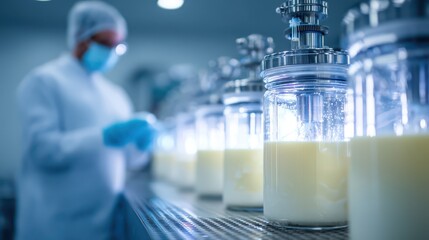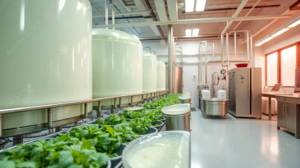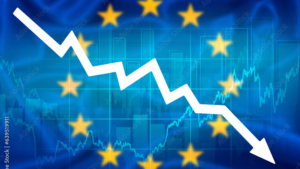
Alt protein: EASAC sees immediate need for action
Experts from the six science academies united in EASAC have called for the immediate establishment of a transparent framework across the EU for the production of biotechnologically manufactured meat alternatives.
The European Academies’ Science Advisory Council (EASAC) has identified an urgent need for action in the future market for meat alternatives. At the beginning of September, a panel of experts called for the creation of a transparent framework for the production of meat alternatives across the EU with immediate effect. According to PW Consulting, the global market for this product group is expected to triple from US$18.4 billion in 2024 to US$67.15 billion in 2031. “The EU must act now if it wants to stay ahead in the protein transition, ensure food security, and achieve its climate and biodiversity goals. It should develop policies that promote innovation in meat alternatives while ensuring food safety and consumer protection,” says Professor Bert Rima, chair of the expert group.
Great potential
In its report “Protein Production and Consumption in the EU,” EASAC examines the potential of meat alternatives from plants, insects, biomass, and precision fermentation. The background to this is the recommendation by the Food and Agriculture Organization of the United Nations (FAO) to reduce the carbon footprint of food consumption by 90%. Around 24% of the environmental footprint of food is attributable to meat products from animal husbandry. Accordingly, their ecological footprint would have to be reduced by 21.6%.
In their study, the experts arrive at highly divergent assessments of the various meat substitute products. However, they generally recommend promoting research into their long-term effects and the scaling up of potentially sustainable and safe products with government funding, as meat alternatives can contribute to a healthier, more resilient food supply that is in line with the EU’s climate and biodiversity goals.
The path to the consumer
In order to promote trust and acceptance of what are largely novel foods under EU law, the experts led by Bert Rima and Hannah Tuomista are calling for stringent food labeling that includes the degree of processing, nutritional value, environmental sustainability, the use of genetic engineering even in GMO-free products, and animal ingredients according to strict scientific criteria. It is important that consumers are able to make informed decisions.
Given the diversity of products in development and on the market, the report attempts to strike a balance between generalizations and specific information on individual product groups. Plant-based meat alternatives are often too salty and highly processed, and some have an ecological footprint that is close to that of turkey meat production. For others, such as insect protein, which has a high nutritional profile, long-term studies on digestibility are necessary, as are long-term studies on the effects on the gut microbiome.
Depending on the carbon source, products made from fungal mycelium save significant amounts of land, water, and energy and offer a very good nutritional profile. The same applies to the production of nature-identical proteins via precision fermentation, where energy consumption, scaling costs, and slow EU approval are still causing developers considerable headaches. However, given the great potential for sustainability and health, research investments are worthwhile. Although the products, like vitamins that have been produced in a similar way for decades, do not contain genetically modified production organisms, their use must be communicated, as certain consumers simply reject them on principle, which must be respected.
In order to exploit the potential of meat alternatives and approve products that are beneficial to consumers, the EASAC experts recommend incorporating their six recommendations into the ongoing discussions on an EU protein strategy: raising consumer awareness, introducing health and nutrition guidelines, setting standards for environmental sustainability, creating a framework for innovation, considering ethical aspects, and increasing transparency.
Across Europe, farmers are strongly opposed to biotechnological processes, which, in addition to changing consumer behavior, could jeopardize the business of the world’s seventh-largest meat exporter. The EASAC report therefore emphasizes the importance of involving farmers in the transformation.


 EC- press service
EC- press service adobe.stock.com - Cathy
adobe.stock.com - Cathy Celt Studio - adobe stock.com
Celt Studio - adobe stock.com